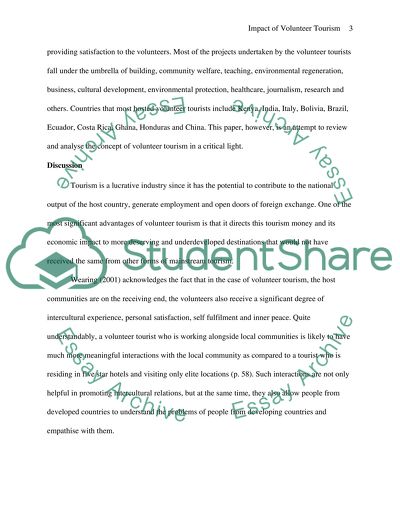Cite this document
(“Analyze an evaluate the impact of volunteer tourism on host Essay - 1”, n.d.)
Analyze an evaluate the impact of volunteer tourism on host Essay - 1. Retrieved from https://studentshare.org/tourism/1472967-analyze-an-evaluate-the-impact-of-volunteer
Analyze an evaluate the impact of volunteer tourism on host Essay - 1. Retrieved from https://studentshare.org/tourism/1472967-analyze-an-evaluate-the-impact-of-volunteer
(Analyze an Evaluate the Impact of Volunteer Tourism on Host Essay - 1)
Analyze an Evaluate the Impact of Volunteer Tourism on Host Essay - 1. https://studentshare.org/tourism/1472967-analyze-an-evaluate-the-impact-of-volunteer.
Analyze an Evaluate the Impact of Volunteer Tourism on Host Essay - 1. https://studentshare.org/tourism/1472967-analyze-an-evaluate-the-impact-of-volunteer.
“Analyze an Evaluate the Impact of Volunteer Tourism on Host Essay - 1”, n.d. https://studentshare.org/tourism/1472967-analyze-an-evaluate-the-impact-of-volunteer.


